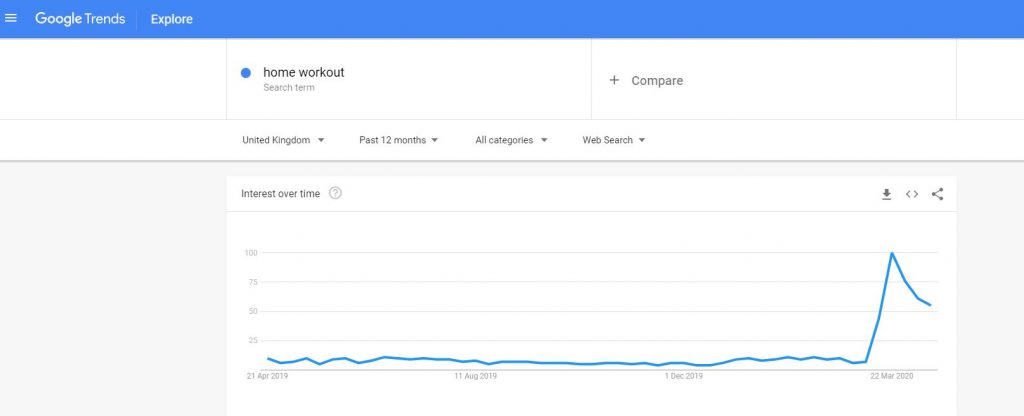With the UK government restrictions currently still in place, it looks like marketers are going to have to dig in for a bit longer before business returns to normal. Digital marketing during the Coronavirus is certainly taking on a different appearance than what we’re used to, but for marketers and SMEs what is the best approach to navigate through these troubled times?
Taking stock of digital marketing activity
Firstly, it’s important for any digital business to take stock at this challenging time. It’s tempting to shrink away from spending on marketing to customers when sales and conversions are less likely. However, data from the last major recession (2008-2009) shows that businesses who doubled down on marketing and brand development actually fared better than those that didn’t. For instance, the double-digit winners in the S&P 500 index in the US all had the following in common – high returns on capital invested or a high number of cents returned for every dollar invested in the business.
Whilst we’re not suggesting that everyone in the business world goes on a digital marketing spending spree, intelligently-allocated resources in times of crisis can help to keep things going more smoothly. A complete cessation of marketing activity might save money in industries where consumer confidence and associated sales have taken a temporary downturn, but consumers can be quick to forget brands if brand marketing is scaled down, for example.
Also, there is an opportunity here to build brand empathy (For example, EE’s TV campaign based around giving NHS workers free data and supermarkets changing their opening hours to give preference to key workers and the elderly at certain times of the week) which will continue following lockdown as consumers and businesses get back on their feet.

What to do on your website and listings
Google have published official advice on what digital business owners should do with their websites during COVID-19 which, in summary, includes the following suggestions:
- Update your Google My Business details if your opening hours have changed
- If you are unable to take any orders, disable checkout functionality and put clear messaging on the site to this effect
- If you hold events, use the relevant Schema markup to mark them virtual, postponed, or cancelled in Google Search
- If you have FAQ sections, adding FAQ schema may help these to be surfaced in search
Source: https://www.seroundtable.com/google-search-changes-for-covid-19-in-tweets-29279.html
What to do with paid ads
With regards to paid channels during the current crisis, it’s critical that every pound spent is doing something useful for the business. It would be wise to ask yourself the following:
- Are my ads getting a good engagement rate?
- Does any ad copy need tweaking to reflect current circumstances?
- Is there any wasted spend from ads that aren’t converting?
- Are my ads targeting the right time of day? (with many now working from home or furloughed)
Be careful not to cut back too much as spend without conversions may not necessarily signal bad performance. For example, spending £5 on an ad group over a month when the average CPC is £2.50 and your average conversion rate is 1% doesn’t mean that £5 has been wasted!
It’s generally best to look at how many conversions would normally be expected through a given amount of spend on ads during a particular time. To calculate this we can use the following process:
- Find out your PPC-specific conversion rate
- Apply this percentage to the clicks on your current ads to find out the expected conversions for each ad or ad group
- Compare these conversion numbers with live conversions
As a general rule, the more expected than actual conversions there are, the more likely it is that the particular ad isn’t performing as well as it should do and could be paused. Looking at conversion value compared to cost in Google Ads in another way of doing this (just be cautious that one high-ticket price item doesn’t skew the data).
[showmodule id=”8378″]
What to do with website content
Changes in search behaviour during the epidemic have been enormous, with COVID-19 related searches by far the most popular searches on Google, far exceeding searches relating to Facebook, Amazon or searches for Google itself. As a result, it’s definitely worth looking into pivoting content strategies on a temporary basis to take advantage of this if appropriate. For example, fitness retailers would do well to focus more on stay-at-home workout plans and related content (especially video content) with gyms remaining shut, whereas retailers selling electrical equipment as part of their product offering (computer suppliers, for example) may benefit from content relating to working efficiently at home etc.. (guides around hardware and software linking to product pages).

Is there support available?
Both Facebook and Google (among other businesses) have rolled out schemes to help provide support for small businesses. Whilst it’s by no means a guarantee that your business will be accepted, it may be worth checking out the following:
Facebook Small Business Grants programme
COVID-19: Ad credits for Google Ads Small and Medium-sized Businesses
As well as this, if you would like to find out how Agency51 can help your business through lockdown and beyond, then get in touch with us to arrange a FREE online consultation.
























